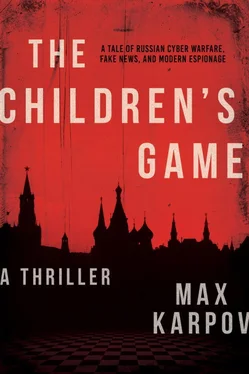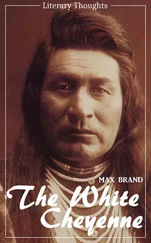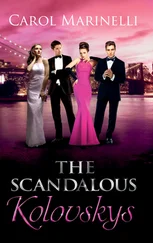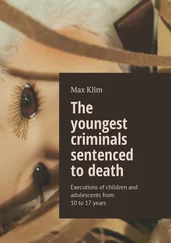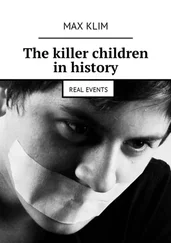Turov’s eyes stayed with Delkoff as they sat. They’d met once before, seven or eight years ago. Turov conveyed much the impression he had then—an ordinary-looking man, middle-aged, with short-cropped gray hair and firm lips that lent a sensible expression to his face. But there was an otherworldly quality to his pale blue eyes that was a little unsettling, like the eyes of a wild dog. “We are indebted to you,” Turov said. “You have made important strides in the Donbas. Even though I know that you are not pleased with how the war is going. None of us are.”
Delkoff nodded, being careful. His first instinct was to distrust men he didn’t know. And Turov, despite his unassuming demeanor, had a reputation as a magician, a man who could deceive people in ways they didn’t see or even imagine.
“Russia’s passions were awakened in March of 2014, as you know,” Turov went on, meaning the annexation of Crimea. “But you understand better than anyone the problem we have faced since then.”
Turov’s eyes stayed with him. This issue—“the problem”—had come up several times in his debriefings. Delkoff had taken it as a test of loyalty then; now, he saw it was something else.
“We have an assignment that you are uniquely qualified to carry out,” Turov said, with his even temperament. “That will help us to at last end this war. To win it.”
Delkoff sat up a little straighter. He knew that Turov was talking about the larger war now. The war for a greater Russian society, anchored in tradition, discipline, morality—all those things the West had lost or was losing.
“It’s important that we speak openly here,” Turov said. “I would like to hear what concerns you most about Ukraine.”
“The same things that concern you,” Delkoff said, glancing at the closed file on Turov’s desk, and the printout of notes beside it. Turov had vetted him for weeks, he knew, since long before he’d been summoned to Moscow. His team had talked with Delkoff’s estranged daughter in Belarus, his friends and his ex-wife. “The same things that concern the men fighting there, and their families,” he said. “That we don’t finish what we started. Otherwise, what was it for?”
Turov nodded for him to go on.
“I’m concerned, as many Russians are,” Delkoff said, “that our weakness will leave us vulnerable. That it will open us up to riots and a Western-led fascist revolution—like what the Americans did in Kiev, and in the Middle East. The hypocrites.”
Turov’s eyes brightened for a moment, giving affirmation to his words—“riots” being the preferred term to “protests”; “fascist” preferable to “democratic.”
“And, of course, we fight the complicity at home every day, don’t we?” Turov said. “We are concerned about what you call”—he glanced at his notes—“the ‘politicized management of the war.’ As you know, his approval ratings top eighty percent now,” he continued, “but what are those polls really measuring? People do not realize how isolated, and paranoid, he has become.”
Delkoff nodded but said nothing, knowing that they had just crossed a line. He saw in Turov’s reasonable face now what this “assignment” really was. Not a proxy op for the Kremlin, as he’d been led to believe when called back to Moscow. It was the opposite: he was being recruited by the right-wing elites within the government, a small cadre of interior ministers and military generals who understood that the current leadership, which had brought Russia to the brink of greatness again, had grown too reckless and unpredictable—too closely bound to the ego of one man—to survive.
“Already he has put us in a dangerous game of brinksmanship, as you know,” Turov said. “There is no strategic plan anymore, except what is in his head.”
“And that changes,” Delkoff said.
“Yes, exactly. The developments in America, of course, have only emboldened him. But he is still the same man. A little man, puffed up with power. Too afraid of showing weakness to be a real leader.”
Delkoff waited, stirred by Turov’s words. He did not know the finer details of history as Turov did, but he understood its basic lessons: oppression does not last, hubris does not win, popularity is a transitory business; men who lead repressive regimes leave terrible legacies.
“The problem is, he will never step down on his own,” Turov said, speaking more softly, and Delkoff saw a flicker of regret in his face that he understood; it was possible to love the president’s intentions but disapprove of his methods. Delkoff thought of his son’s mother wailing in her theatrical voice, after learning their boy had been killed: “Putin did this. Putin killed my son.” Delkoff had scolded her to be quiet, although he had secretly shared some of that same feeling. “We find ourselves at a regrettable impasse,” Turov went on, showing the palm of his right hand. “We have no choice now but to open a new front.”
Delkoff said nothing. Open a new front. It was a phrase that he himself had used, many times.
In the span of seven minutes, Andrei Turov explained the operation that Delkoff had been chosen to carry out. The framework was already established. Delkoff’s role would be to recruit and train a small group of soldiers, and then to oversee the plan’s execution. The ordinary qualities of Turov’s manner seemed to fall away as he detailed the operation; Delkoff saw a hard inner shrewdness in him, an aptitude that he hadn’t imagined when he’d walked in the room.
“We believe you are the only one who can do this successfully,” Turov said. Delkoff felt the hairs on his arms prickle. Of course, he could do it. It was the assignment he’d been preparing for all of his life. But at the same time, Delkoff understood that he wasn’t being asked. He was fairly certain that if he said no, he would not leave this house alive.
But Delkoff had no intention of saying no.
He listened to the terms and logistics. There was one connection he would have to make—a Ukrainian oligarch named Dmitro Hordiyenko, who would supply the arms and equipment. The rest would be up to him. Delkoff’s remuneration would be so substantial that there was no need to negotiate.
“And what about afterward?”
“For Russia?” Turov answered indirectly, assuring Delkoff that the motherland would be in capable hands. “I can’t give you names. But I can tell you that you would not have been chosen if we thought you would disapprove of the outcome in any way.” He nodded at the leather folder on his desk.
“And what about me?” Delkoff said.
“We’ll work with you. You won’t have to return to Russia if you’d prefer to start a new life elsewhere. That will be your choice.” And Turov explained this, too.
By then, Delkoff was already beginning to think of the men he would hire: an eager Russian soldier named Alexander Zelenko, who’d fought with him in Luhansk and reminded Delkoff of his late son; Mikhail Kolchak, a corrupt Ukrainian missile commander, who would bring strong personal motives to the mission; and his own cousin, Dmitri, who would help him once it was over. “And the blame?” he said.
“The blame will fall on the SBU,” Turov answered, meaning Ukraine’s security and intelligence agency. “But, ultimately, on the Americans. It’s their hypocrisy, as you call it, that has pushed us to this. As the Russian soul has awakened, the American soul—what passes for one—has been asleep. For too long, the Americans have been allowed to invade sovereign nations, indiscriminately killing tens of thousands of civilians in the name of ‘democracy.’ Then they condemn us for simply defending the ethnic Russian people of Ukraine against oppression, a matter that has nothing to do with them. We need to turn that around. And we will. This is something they will not see coming.”
Читать дальше
